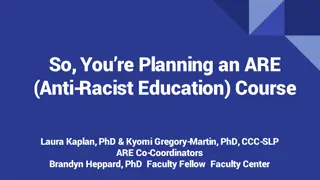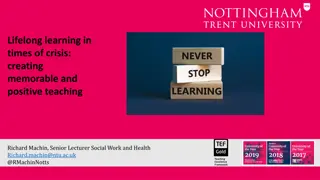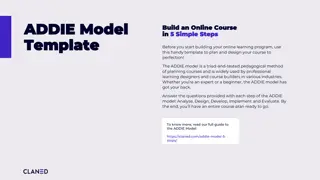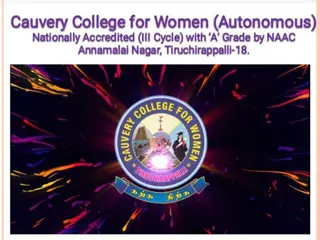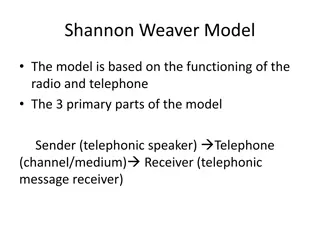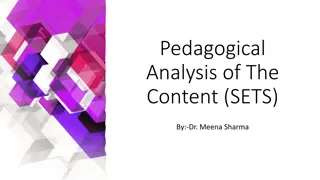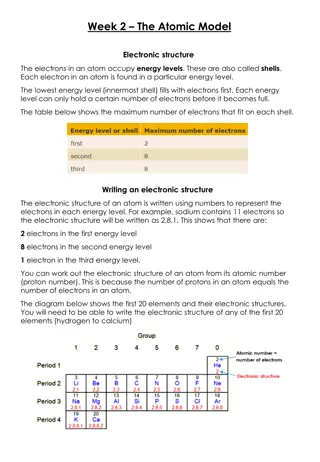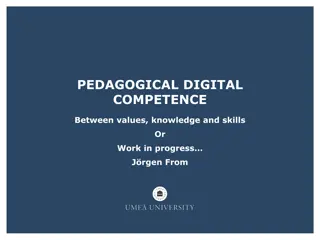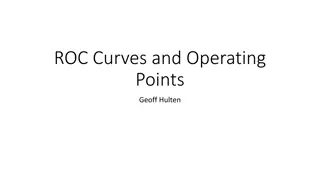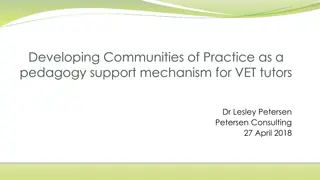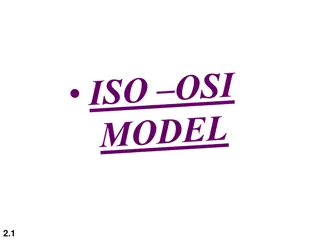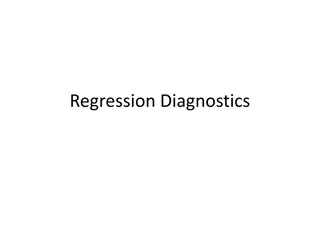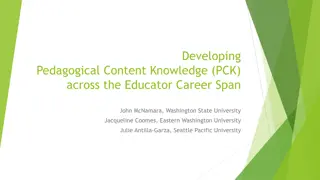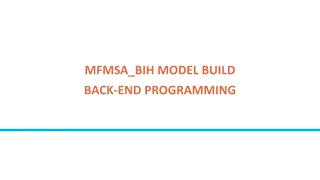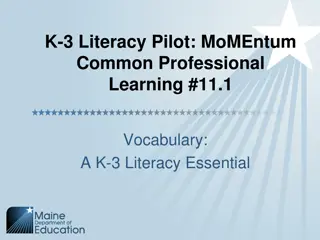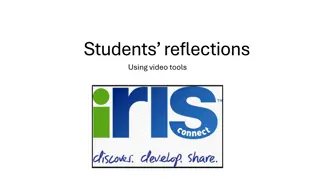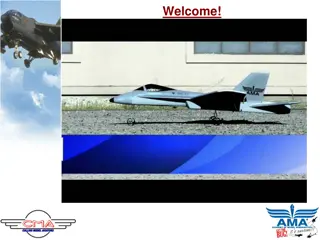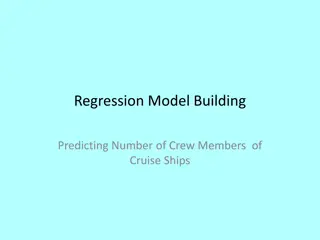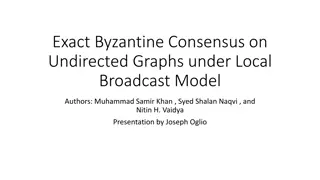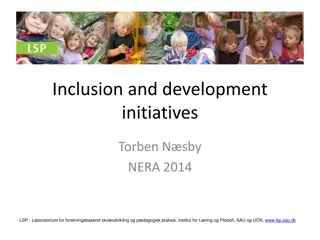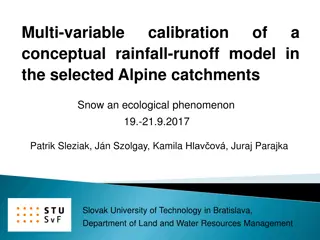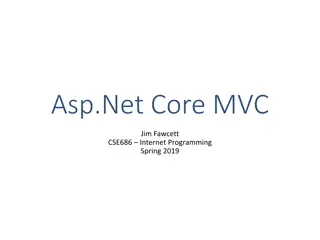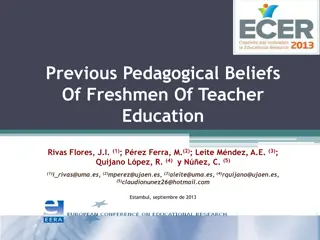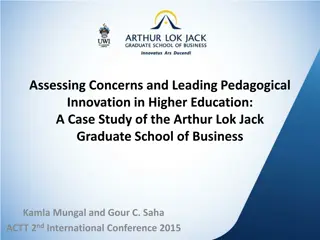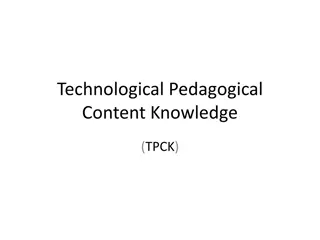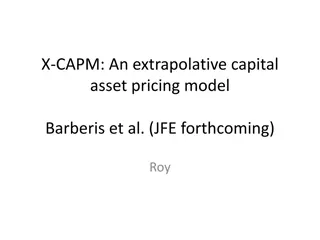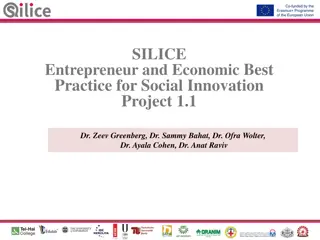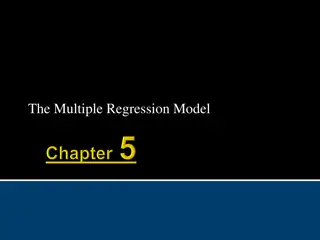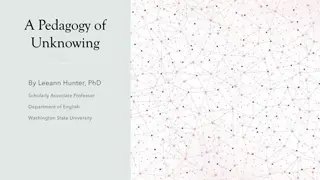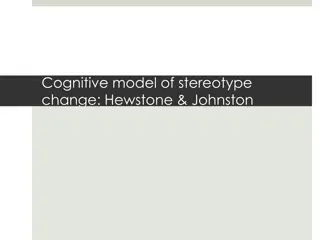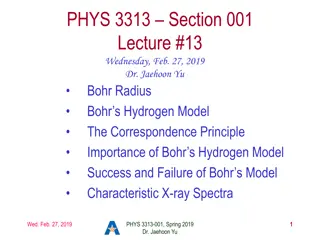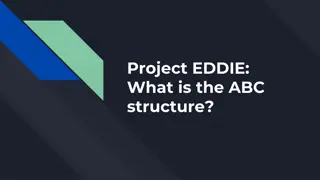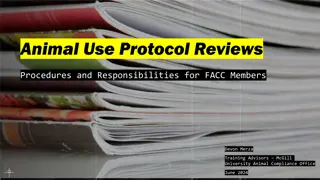Building a Macrostructural Standalone Model for North Macedonia: Model Overview and Features
This project focuses on building a macrostructural standalone model for the economy of North Macedonia. The model layout includes a system overview, theory, functional forms, and features of the MFMSA_MKD. It covers various aspects such as the National Income Account, Fiscal Account, External Accoun
2 views • 23 slides
NAMI Family Support Group Model Overview
This content provides an insightful introduction to the NAMI family support group model, emphasizing the importance of having a structured model to guide facilitators and participants in achieving successful support group interactions. It highlights the need for a model to prevent negative group dyn
6 views • 23 slides
Understanding Anti-Racist Education: A Comprehensive Overview
This content provides insights into Anti-Racist Education (ARE), discussing its essence, what it is not, and its pedagogical considerations. It delves into the importance of fighting systematic racism, embracing student identities, and creating inclusive classroom environments to engage meaningfully
6 views • 26 slides
Creating Resilient Graduates: Pedagogical Model for Lifelong Learning in Times of Crisis
In times of instability, educators must help students understand societal events, build resilience, skills, and emotional intelligence. This presentation by Richard Machin outlines a pedagogical model focusing on professional experience, research, and lived experience to prepare graduates for challe
1 views • 9 slides
Reimagining Blended Learning: Making Space for Transformation
Blended learning faces challenges such as overcrowded campuses and exhausted staff but can evolve through active, pedagogical spaces, stakeholder communication, and staff-student partnerships. The solution lies in creating spaces for care, reflection, experimentation, and dialogue to explore new ped
0 views • 6 slides
Pedagogical Shift in Physical Science: Constructing Knowledge Through Learner-Centered Experiences
There is a significant pedagogical shift in physical science education from viewing science as a fixed body of knowledge to emphasizing the process of constructing knowledge. Learners are now placed at the center stage, engaging in inquiry-based learning, critical thinking, and collaborative interac
3 views • 21 slides
Designing an Online Course Using ADDIE Model: 5 Simple Steps
Design your online course effectively using the ADDIE model in 5 simple steps. Analyze the course objectives, identify the target audience, address constraints, and plan content design to create a successful online learning program. Utilize the insights from the Analysis step to make crucial decisio
0 views • 11 slides
Understanding Entity-Relationship Model in Database Systems
This article explores the Entity-Relationship (ER) model in database systems, covering topics like database design, ER model components, entities, attributes, key attributes, composite attributes, and multivalued attributes. The ER model provides a high-level data model to define data elements and r
0 views • 25 slides
Communication Models Overview
The Shannon-Weaver Model is based on the functioning of radio and telephone, with key parts being sender, channel, and receiver. It involves steps like information source, transmitter, channel, receiver, and destination. The model faces technical, semantic, and effectiveness problems. The Linear Mod
0 views • 8 slides
Pedagogical Analysis of Sets in Mathematics: Key Concepts and Teaching Strategies
Explore the pedagogical analysis of SETS by Dr. Meena Sharma, focusing on major concepts like the meaning of SET, SET notation, classification of SETS, and fundamental operations. Understand minor topics such as examples of sets, SET notation methods, and types of SETS. Objectives include defining S
0 views • 8 slides
Understanding Atomic Structure: Electrons, Energy Levels, and Historical Models
The atomic model describes how electrons occupy energy levels or shells in an atom. These energy levels have specific capacities for electrons. The electronic structure of an atom is represented by numbers indicating electron distribution. Over time, scientists have developed atomic models based on
0 views • 5 slides
Exploring Pedagogical Digital Competence in Education
Education is evolving in the digital age, requiring teachers to develop Pedagogical Digital Competence (PDC) to enhance student learning. PDC involves applying attitudes, knowledge, and skills to plan, conduct, evaluate, and revise ICT-supported teaching effectively. It operates at three levels - mi
0 views • 9 slides
Understanding ROC Curves and Operating Points in Model Evaluation
In this informative content, Geoff Hulten discusses the significance of ROC curves and operating points in model evaluation. It emphasizes the importance of choosing the right model based on the costs of mistakes like in disease screening and spam filtering. The content explains how logistical regre
7 views • 11 slides
Enhancing Pedagogical Development Through Community of Practice
The research project led by Dr. Lesley Petersen of Petersen Consulting focuses on investigating the effectiveness of a Community of Practice (CoP) in developing pedagogical practices of foundation education tutors in the VET context. Utilizing participative action research and peer mentoring partner
0 views • 13 slides
Understanding the OSI Model and Layered Tasks in Networking
The content highlights the OSI model and layered tasks in networking, explaining the functions of each layer in the OSI model such as Physical Layer, Data Link Layer, Network Layer, Transport Layer, Session Layer, Presentation Layer, and Application Layer. It also discusses the interaction between l
1 views • 41 slides
Regression Diagnostics for Model Evaluation
Regression diagnostics involve analyzing outlying observations, standardized residuals, model errors, and identifying influential cases to assess the quality of a regression model. This process helps in understanding the accuracy of the model predictions and identifying potential issues that may aff
1 views • 12 slides
Developing Pedagogical Content Knowledge (PCK) for Educator Excellence
Explore how Developing Pedagogical Content Knowledge (PCK) throughout an educator's career enhances student learning and growth. Learn strategies to integrate content knowledge, pedagogy, and socio-emotional learning effectively. Discover the progression of teacher development from recruitment to le
2 views • 29 slides
Exploring Transliteracy and Pedagogical Models in Digital Learning Environments
This content delves into the concepts of transliteracy and pedagogical models, emphasizing the importance of mapping meaning across various media in digital learning. It discusses the interconnectedness of text literacy, visual literacy, and digital literacy, highlighting the social uses of technolo
0 views • 15 slides
MFMSA_BIH Model Build Process Overview
This detailed process outlines the steps involved in preparing, building, and debugging a back-end programming model known as MFMSA_BIH. It covers activities such as data preparation, model building, equation estimation, assumption making, model compilation, and front-end adjustment. The iterative p
0 views • 10 slides
Promoting STEM Research Career Aspirations Through Pedagogical Practices
This study explores the impact of pedagogical practices in introductory STEM courses on students' aspirations towards research careers. It investigates the differences in effects on Underrepresented Racial Minority (URM) students and non-URM students, as well as variations in experiences within thes
0 views • 13 slides
Insights into Vocabulary Instruction for K-3 Literacy Educators
Explore the significance of vocabulary instruction, delve into vocabulary research categories, and learn about effective teaching strategies through a decision-making model. Discover research-backed methods like read-alouds, repeated readings, and concept mapping that boost vocabulary development in
1 views • 11 slides
Enhancing Pedagogical Competencies Through Video Reflection in Education
Exploring the use of video tools for student reflections in educational settings, particularly focusing on pedagogical situations. The content showcases examples of student-created videos for educational purposes, highlighting the benefits of video-based professional reflection in developing pedagog
0 views • 15 slides
Proposal for Radio Controlled Model Aircraft Site Development
To establish a working relationship for the development of a site suitable for radio-controlled model aircraft use, the proposal suggests local land ownership with oversight from a responsible agency. Collins Model Aviators is proposed as the host club, offering site owner liability insurance throug
0 views • 20 slides
UBU Performance Oversight Engagement Framework Overview
Providing an overview of the UBU Logic Model within the UBU Performance Oversight Engagement Framework, this session covers topics such as what a logic model is, best practice principles, getting started, components of the logic model, evidence & monitoring components, and next steps. The framework
0 views • 33 slides
Regression Model for Predicting Crew Size of Cruise Ships
A regression model was built to predict the number of crew members on cruise ships using potential predictor variables such as Age, Tonnage, Passenger Density, Cabins, and Length. The model showed high correlations among predictors, with Passengers and Cabins being particularly problematic. The full
0 views • 16 slides
Exact Byzantine Consensus on Undirected Graphs: Local Broadcast Model
This research focuses on achieving exact Byzantine consensus on undirected graphs under the local broadcast model, where communication is synchronous with known underlying graphs. The model reduces the power of Byzantine nodes and imposes connectivity requirements. The algorithm involves flooding va
0 views • 7 slides
Understanding Inclusion and Development Initiatives in Educational Settings
The project involves empirical research on 130 pre-schools utilizing the LP-model and focusing on inclusion. Through a mixed methods design, the study aims to identify barriers to inclusion and observe the transformation of pedagogical analysis into development initiatives. The analysis distinguishe
0 views • 15 slides
Calibration of Multi-Variable Rainfall-Runoff Model Using Snow Data in Alpine Catchments
Explore the calibration of a conceptual rainfall-runoff model in Alpine catchments, focusing on the importance of incorporating snow data. The study assesses the benefits of using multi-objective approaches and additional datasets for model performance. Various aspects such as snow cover, groundwate
0 views • 16 slides
Understanding Asp.Net Core MVC - Building Web Applications with Model-View-Controller Pattern
Asp.Net Core MVC is a framework for building web applications based on the Model-View-Controller pattern. The model manages application data and constraints, views present application state, and controllers handle requests and actions on the data model. Learn about the MVC structure, life cycle, mod
0 views • 22 slides
Insights into Freshmen's Pedagogical Beliefs in Teacher Education
Investigating freshmen's pedagogical beliefs in teacher education, this study conducted biographical-narrative research to explore how students construct their teaching professional identity through school, social, and cultural experiences. The research focuses on knowledge acquisition, learning pro
0 views • 11 slides
Assessing Concerns and Leading Pedagogical Innovation in Higher Education: A Case Study of Arthur Lok Jack Graduate School of Business
This case study explores the implementation of the philosophy of Authentic Teaching and Learning at a business school, addressing concerns and preparedness for innovation. Research questions focus on faculty support and interventions based on faculty concerns. The Concerns-Based Adoption Model is ap
0 views • 26 slides
Understanding Technological Pedagogical Content Knowledge (TPCK)
Technological Pedagogical Content Knowledge (TPCK) is a framework developed by Punya Mishra and Matthew J. Koehler that integrates content, pedagogy, and technology for effective teaching. TPCK emphasizes the interaction between these three key components to enhance technology integration in educati
0 views • 55 slides
Understanding X-CAPM: An Extrapolative Capital Asset Pricing Model
This paper discusses the X-CAPM model proposed by Barberis et al., which addresses the challenges posed by investors with extrapolative expectations. The model analytically solves a heterogeneous agents consumption-based model, simulates it, and matches various moments. It explores how rational inve
0 views • 23 slides
Innovation and Social Entrepreneurship Initiatives in Higher Education
This project focuses on establishing a leading center for promoting innovation and social entrepreneurship within higher education institutions. It aims to encourage students and staff to develop creative solutions for community challenges, expand social involvement, and foster sustainable positive
0 views • 13 slides
Principles of Econometrics: Multiple Regression Model Overview
Explore the key concepts of the Multiple Regression Model, including model specification, parameter estimation, hypothesis testing, and goodness-of-fit measurements. Assumptions and properties of the model are discussed, highlighting the relationship between variables and the econometric model. Vari
1 views • 31 slides
Engaging Pedagogical Approaches for Student Well-Being
Navigating expertise, embracing the unknown, and supporting student resilience are key themes in the innovative pedagogical practices highlighted. The exploration dives into promoting student purpose, dismantling assumptions about expertise, and cultivating living classrooms. The emphasis on creatin
0 views • 14 slides
Cognitive Model of Stereotype Change: Three Models Explored
The Cognitive Model of Stereotype Change, as researched by Hewstone & Johnston, delves into three key models for altering stereotypical beliefs: the bookkeeping model, the conversion model, and the subtyping model. These models suggest strategies such as adding or removing features to shift stereoty
0 views • 58 slides
Understanding Bohr's Model of the Hydrogen Atom
Exploring the significance of Bohr's hydrogen model in physics, this lecture delves into the Bohr radius, the correspondence principle, and the success and limitations of his model. Discover how characteristic X-ray spectra contribute to our understanding of atomic structures, leading to the conclus
0 views • 14 slides
Understanding the ABC Structure and Pedagogical Approach in Science Education
Explore the ABC structure of inquiry-based learning – from Prescriptive to Open Inquiry, and understand the rationale behind this pedagogical approach in providing authentic disciplinary experiences to students. Overcome challenges in managing unknowns in open inquiry and discover the key elements
0 views • 12 slides
Animal Use Protocol Reviews and Responsibilities: Guidelines for FACC Members and Training Advisors
This document outlines the protocol review procedures and responsibilities for FACC members and training advisors at McGill University's Animal Compliance Office. It emphasizes the importance of scientific or pedagogical merit, alignment with guidelines and frameworks, and justification for deviatio
0 views • 22 slides


